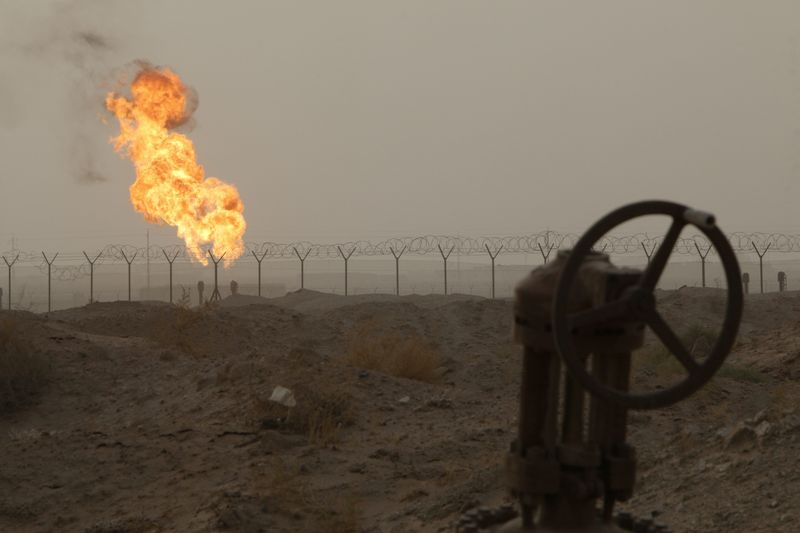By Shariq Khan
NEW YORK (Reuters) -Oil prices rose about 1% in volatile trade on Tuesday, bouncing off multi-month lows hit in the previous session, as investor attention turned to supply tightness and financial markets recovered from their recent slump.
futures were up 55 cents, or 0.7%, to $76.85 a barrel at 1:34 p.m. ET (1734 GMT). U.S. West Texas Intermediate futures were up 62 cents, or 0.9%, to $73.56 per barrel.
Iran’s vow of retaliation against Israel and the U.S. following the killing of two militant leaders has raised concerns that a wider war is brewing in the Middle East, which could have a direct impact on supplies from the region.
Lower production at Libya’s 300,000 barrel-per-day Sharara oilfield is also adding to concerns of supply shortages. Libya’s National Oil Corp said on Tuesday it would start to gradually decrease production at the field due to protests.
Recent declines in and fuel inventories at major trading hubs are also supporting oil prices.
“Oil fundamentals are still suggesting an undersupplied oil market, with oil inventories still falling,” UBS analyst Giovanni Staunovo said.
Global oil inventories decreased by around 400,000 barrels per day (bpd) in the first half this year, according to U.S. Energy Information Administration (EIA) estimates published on Tuesday. It expects stockpiles to decline by around 800,000 bpd in the second half of the year. [EIA/M]
While the agency lowered its average oil price forecasts for this year and next year after recent declines precipitated by economic concerns, it expects higher prices in the coming months. Brent spot prices will range between $85 and $90 per barrel by the end of the year, the EIA said.
Brent futures had slumped to their lowest since early January in the previous session, while WTI touched its lowest since February, as a global stock market rout deepened on growing concerns of a recession in the United States.
The U.S. is the largest petroleum consumer, making its economy a critical component of oil demand.

U.S. central bank policymakers pushed back on Monday against the notion that weaker than expected July jobs data means the economy is in recessionary freefall.
Gasoline demand in the U.S. was likely at over 9 million barrels per day last week, also instilling confidence in the country’s economy, Staunovo said.

